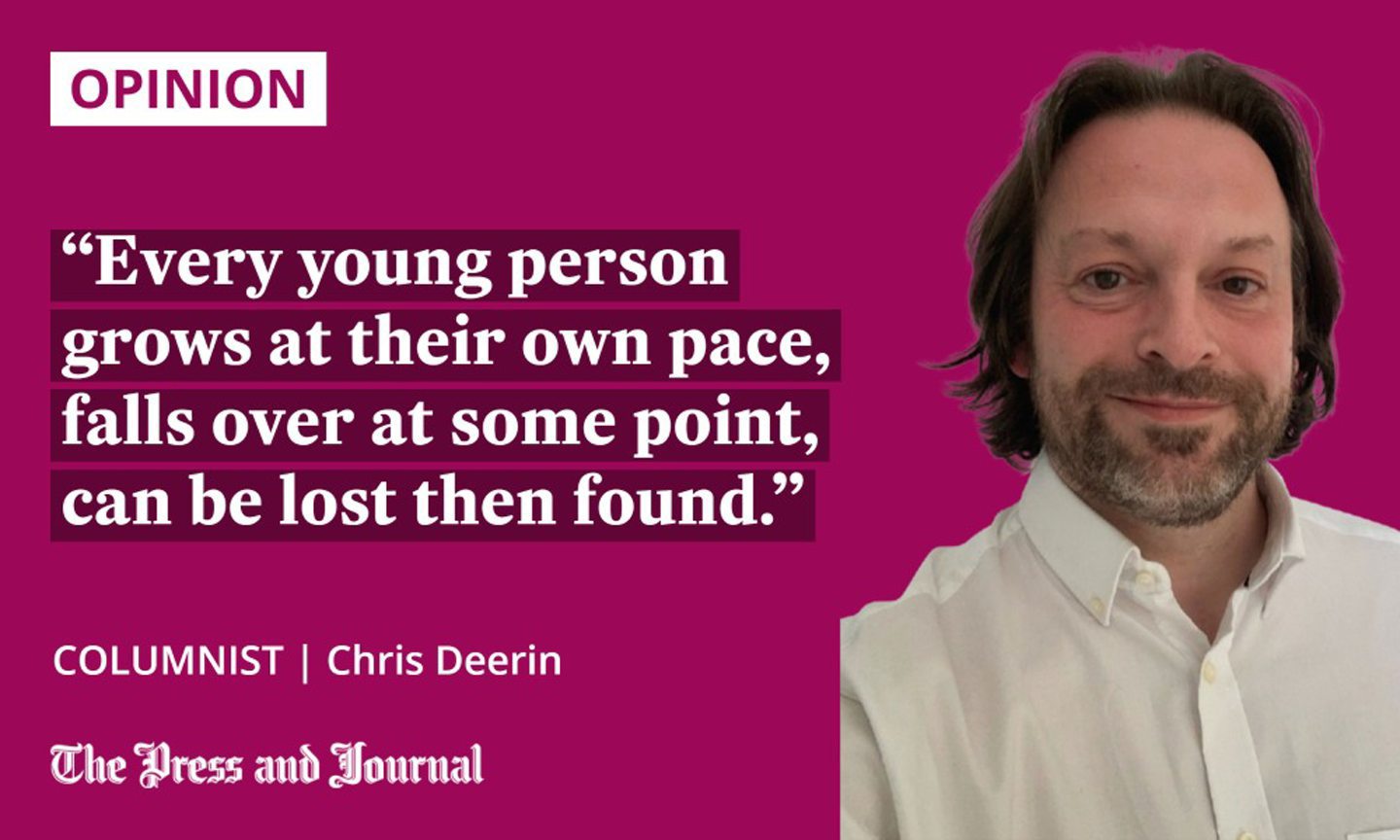Occasionally, cruel life demands that we return to the scene of our crime.
Thus, on a recent sunny Saturday, I found myself arriving, with something of a hangdog expression, back at Edinburgh’s Napier University.
The reason was actually a happy one. Middle daughter begins a degree course there this autumn. We were to meet some of her lecturers and have a look around the site and the student accommodation.
As we pulled up at the Merchiston campus, though, I felt my shoulders knot. I was a Napier student once, 30 years ago – how can anything be 30 years ago? – and it did not go well. Couldn’t, really, have gone much worse.
One of those bright enough but troubled and distracted kids – chronically anxious, a touch of OCD – I found the basic business of life a challenge. I had done badly in my Highers, and been rejected by every university English department I had applied to. I did, however, secure an interview for Napier’s HND in journalism, which was seen as a useful gateway to a career in newspapers.

Given its considerable track record of success and the ranks of wannabe hacks desperate for the inky life, entry to the course was competitive. Somehow, I talked my way in.
I remember they gave us a written quiz that included the mysterious question: “Who is Marmaduke Hussey?” “Something in entertainment?” was my response. Close enough, apparently.
I’d like to say that this rare success proved the making of me – the moment I understood that the closing door of opportunity had suddenly swung open again, and decided to screw the nut. Reader, I did not.
I spent much of the following two years searching for rare vinyl in Edinburgh’s record shops, sampling its pubs and prowling its streets, a callow boulevardier in a ponytail, double denim and a Teenage Fanclub T-shirt.
It could never have ended well and, of course, it didn’t. I was the only student in my year to fail, and when I phoned to ask why (the cheek!) the bemused head of journalism told me of two conversations he’d had with my lecturers. One said that, on a rare occasion when I visited his classroom, he had thought I was the guest speaker; another confessed he had simply never heard of me.
Newspapers saved me from myself
I hold to the argument that journalism is a trade rather than a profession. I had managed to secure a job with my local paper before my academic embarrassment became publicly established, and learned on the job all the things you can’t in a lecture theatre.
Really, decent shorthand and a grasp of the law are as much as you need to get started as a reporter. The rest – the writing, the doorstepping, the determination not to be scooped by a rival – you pick up quite quickly, if you’re any good.
I was useful enough in the newsroom, and I certainly liked the paycheque that funded lots more rare vinyl and pints. Newspapers saved me from myself, and from a future of drift and uncertainty.
Still, as I walked around the campus with my daughter, it was clear that Napier retained the power to unsettle me. There were ghosts in the shadows of semi-familiar corridors, not least my own.
I know that, of our three girls, the middle one is the most like me, with a quirky intelligence that tends to approach the world from unusual angles, encountering its sharp, cutting edges. We both struggle to feign interest in that which does not interest us, and have a limited social battery.
Don’t cram people into ill-fitting boxes
But, just as I have grown and adapted, so has Napier, and indeed the broader world of higher education. There was a room near the entrance where staff set out the wide range of support available for the anxious, the troubled and those who just need a bit of extra help. I’ve seen the same heightened focus in the many universities I’ve visited professionally in recent years.
The student flats are better, too: newer, cleaner, with reception desks, older students on hand to provide pastoral care and advice, and comfy spaces to get food and drink. It all felt safe and secure and thought-through, and a part of me wondered how I might have fared in such an environment. Might someone have lassoed me back into the herd? Maybe not, but I don’t remember anyone trying.
In my long and reasonably varied career, I’ve worked with all sorts – supremely confident, privately-educated Oxbridge types, state-school bright sparks who see no reason why they shouldn’t rise to the top, and those who have found the route trickier to negotiate, who have largely stumbled their way through, and who will never lose that ever-present imposter syndrome.
It’s regularly the latter who impress most, and who show the greatest character and empathy. It’s never easy for them, but that’s the reason they often produce the most interesting and original work – from a place of self-interrogation and struggle and doubt.
Every young person grows at their own pace, falls over at some point, can be lost then found. We mustn’t try to cram people into ill-fitting boxes, and should understand that early experience of failure can be a boon rather than a barrier. There are many different paths to and types of success, and a wise society fairly weighs and celebrates them all.
Chris Deerin is a leading journalist and commentator who heads independent, non-party think tank, Reform Scotland



Conversation